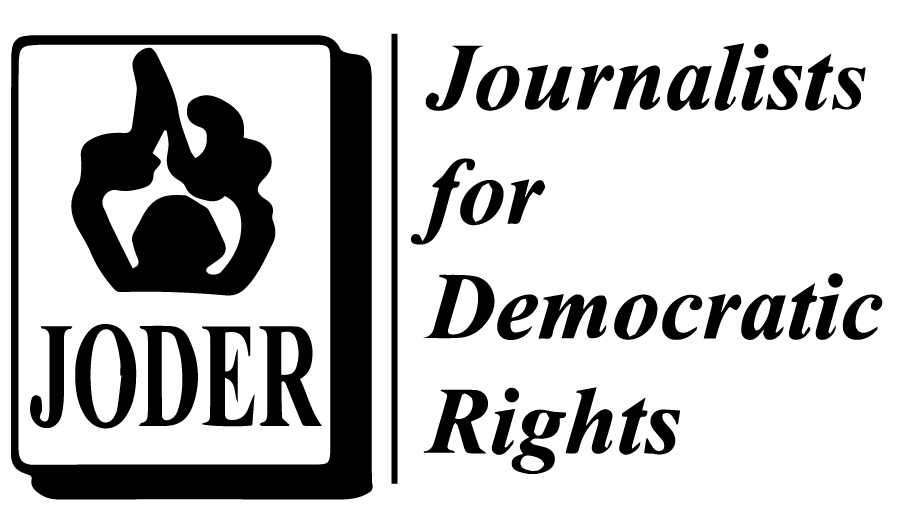COMMUNIQUE ISSUED AT THE END OF A 2-DAY SUMMIT ON PEACE BUILDING AND CONFLICT PREVENTION HELD IN ABUJA ON JUNE 14, 2017 AT DENIS HOTEL, WUSE 2, ABUJA.
BACKGROUND
Following the successful summit of various stakeholders drawn from the diverse social strata in the historic city, Kaduna, and considering the strategic place of Abuja, the seat of Nigerian government and the melting pot of people from among the over 300 ethnic groups;
Here gathered are youth-driven organisations, social movements, labour, artisan leaders being delegates from various parts of Nigeria also representing various groupings, social, cultural and ethnic associations met in Abuja from 13 – 15 June, 2017 to deliberate on our future as a people;
We met at Abuja at the 2-day summit organized by Journalists for Democratic Rights, (JODER) with the support of the Ford Foundation, West Africa Region;
The summit which was divided into two segments, (i) the opening ceremony which was declared by the Acting President, Prof ‘Yemi Osinbajo who was represented by Senator Babafemi Ojudu, the Special Adviser to President Mohammadu Buhari on Political Affairs, (ii) the summit proper which involved the training and the closed door sessions of leaders of ethnic and religious associations present;
Other dignitaries that attended the opening ceremony were the Minister of Interior General Abdulrahman Dambazau represented by Mr Ita Bassey, the Presidential Adviser on Amnesty, General represented by Mr Mologe, the Senate represented by among many other top government officials.
The summit, we admit has come at a very important time in the annals of Nigerian history, considering the nature and form of conflict which continues to make life uncomfortable for the entire citizenry;
The summit takes into consideration the various social relations, the background leading to the present seeming tempestuous nature of Nigeria, the history of the country and the nature and character of the crisis that have dominated the country for a very long time;
That crisis undermines economic and social advancement realizing that peaceful coexistence is desired by all Nigerians irrespective of religion, class distinction or ethnicity;
The participants identify the various types of conflict and their sources in Nigeria. Some of the identified major conflicts are;
- Conflict of economic survival arising in part, from the stiff competition for limited natural resources, poverty and lack of access to opportunities.
- Violent communal dispute arising competition for land and natural resources, grazing opportunities and pastoralism.
- Ethnicity, disagreement over ownership of territories, dichotomy based on ethnic profiling and religious dispute
- Religious extremism, terrorism and violent crimes
Some of the identified causes of conflict are:
- Economic exclusion leading to the lack of access to the essentials of live.
- Religious intolerance which spur violent conflict including suicide bombing.
- Climate change which has crept into most of the Northern states with negative impact on food security. This has also led to mass movement of people from the Sahel to Nigeria.
- Armed conflict in the Middle Belt and in the Margreb region which continue to fuel migration of desperate people displaced by the conflict to Abuja and its environs.
- Environmental pollution and dislocation of human and natural resources in the Niger-Delta.
Observations
Delegates are aware of the current situation in Nigeria, that in spite of the return to democratic rule in 1999, the country though has recorded breath-taking achievements, but has remained fragile due to weak and vulnerable institutions.
Delegates observed that at present, the country is plagued by several other challenges including ethnic suspicion, dwindling moral values, violence, mutual distrust and other social vices that threaten peace and harmony in the country.
Participants identify immediate and long term threats to democracy and stability in Nigeria. One of the immediate threats is that in the past few weeks, the country has witnessed upsurge in hate speeches, ethnic profiling, unwarranted threats and total disregard for the culture of robust and healthy debate.
That the people on their own should not wait for government to be the only bridge builder or peace maker, but should rather organize themselves in to Peace Ambassadors through indigenous and people-driven initiatives towards sustainable livelihood in Nigeria.
That the summit facilitated by JODER with the support of FORD FOUNDATION has come at the right time the fabric of unity and cooperation among Nigeria’s various social formations appear to be weak and defenseless.
That we the delegates speak have spoken with open-mind, with the conviction that the interaction will help in no small measure the representatives of various communities and organizations to understand and appreciate each other better towards fostering peace and understanding in Nigeria.
RESOLUTIONS
- The delegates agree to explore the opportunity offered by the conference to create platforms in and among communities represented at the summit in Abuja for the peace, happiness and prosperity of the participating communities and by extension Nigeria at large.
- In this regard, we the representatives hereby set up the Nigerian Working Group on Peace Building and Conflict Prevention. The group which is to be coordinated by JODER should also serve as a Rapid Response group to potential flash points of conflict across the country.
- That JODER and FORD should facilitate periodic meetings between leaders of ethnic, religious and cultural groups with the hope of building new bridges of understanding and better cooperation among the relevant stakeholders in the country.
- That the periodic meetings should also include representatives of the various government institutions including but not restricted to democratic institutions and the three tiers of government.
The Resolutions made this day of Thursday, June 15, 2017 in Abuja.



